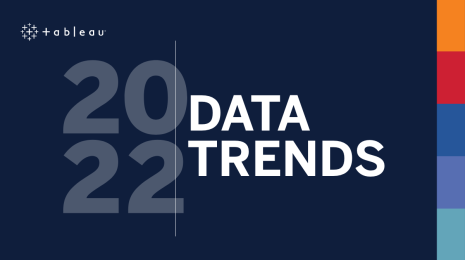The five elements you need to lead a data culture

Editor's note: This article was originally published on Forbes Technology Council.
Leading by example when developing your organization’s data culture is the best path to success. Executive buy-in, sponsorship and prioritization of data use paves the way to organizationwide adoption, which ultimately leads to better decision-making and strategies that benefit your bottom line.
We’ve done the research and talked with clients to understand the best methods to make consistent data use part of your organization. Here are the five elements that are essential to becoming a leader in data culture—and how you can lead this transformation by example.
Mindset
The right mindset is about changing the DNA of how people think about and behave around data when it comes to decision-making.
With the right mindset, data permeates all aspects of the business. Everyone, regardless of role or rank, prioritizes data-based insights over intuition. People focus on measurable outcomes, digging deeper into data to understand what drives results. They challenge ideas with data-based experiments to drive new innovation.
Successful leaders embrace this shift in how people think, speak and act around data. As people become more comfortable working with data, they seek new and better ways to use it. A data mindset also includes thinking about your product or process as a data system into which you have embedded your product or process. When you do this, outcomes are improved, including the quality of customer service, products and processes.
One of our most successful clients adopted the mindset that data is vital to their mission. They even told us that, within the next decade, data engineering will be as important as product engineering.
Commitment
Organizations that tout optimal data cultures don’t just talk about data use; they make a deep commitment to realizing the true value of their data through actions, investment and a willingness to change. Everyone values data as a company asset and treats it like capital.
Data use becomes a requirement and priority for everyone. It is used in every communication and meeting. Decisions are made based on data, not intuition. Processes are designed from the ground up to generate data that's vital to the future of the business.
Executive sponsorship needs to go beyond the CEO to support this transformation. We’ve found it takes a combination of at least three executive sponsors: a data analytics champion in the CEO or a CDO to create and implement the vision, a CIO or CTO to find the best technology and establish the enabling processes for employees, and finally a line of business sponsor such as a CFO or CMO, to promote positive outcomes to other leaders and departments.
Trust
Great data cultures have trust at their core. Executives create high-trust environments by believing that people are smart and capable and that they can be trusted with the data they need to drive their organizations forward.
Widespread access to data allows people to establish a shared source of truth and the context around data. This gives them the power to explore and discover new insights. These organizations also invest in data quality and standards, ethics and best practices to strengthen that trust. It’s important to support CDOs and CIOs as they set up the right systems to encourage data access and transparency.
We have a customer that created a trusted place where its people work with real company data. Because employees have access to the most relevant data, they know they can trust it. Setting up a safe space to learn helps people build confidence and creativity in their data skills.
Talent
Great data cultures focus on people. Their leaders believe that critical thinking and data literacy are important—and that data skills must be a part of how they recruit, develop and retain talent.
Leaders help their people by offering the training and support they need to build data literacy. They also need to know what data sources and tools are available and which need to be created for long-term success. Job descriptions and employee development plans should outline important data skills and expectations, and teams should build out their training programs for all skill levels. Data use should also be rewarded.
For one of our clients, the biggest complaint they heard often was “I don’t need analytics in my job,” so they took a creative approach to encourage people to work with data. They created contests with data tied to fun, nonwork-related topics like Tour de France, baby names and the hit reality TV show The Bachelor. People learned that working with data wasn’t scary. That client went from three to 2,900 people analyzing data across 36 departments.
Sharing
Data cultures need cross-team collaboration and access to data from a variety of different systems. But it's not just about shared access. We've found that people are at their best when they share knowledge and help other people.
Do you support an environment where people share their data knowledge? Do your team members share their data across departments to better support their overall business objectives? Do you set aside time for your people to learn and participate in data activities and communities?
We know several organizations that have created centers of excellence (CoEs) to drive data adoption. Often, these CoEs have become so effective at sharing that they operate more like communities where people can engage with data, find mentors, ask questions, offer tips and help one another.
The takeaway
Developing a positive data culture is an ongoing practice. These five elements are not a linear to-do list—in fact, your organization is probably excelling in a few of these areas already. They are, instead, the necessary parts for one to work. None of these are quick fixes. They are deep, foundational changes that need to happen at every level of your organization.
Like mastering anything—a sport, a language or a skill—working on your data culture will take practice, effort and time. Consider these critical elements to benchmark where you are in the process and give you an idea of what work still needs to be done to become a data leader in this new era. And if you do this, your organization and people will thrive as a result.
Autres sujets pertinents
Abonnez-vous à notre blog
Recevez toute l'actualité de Tableau.









